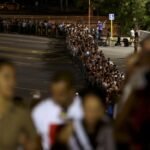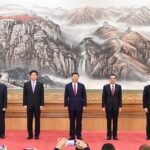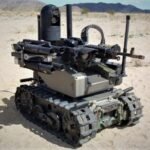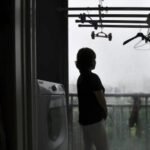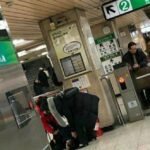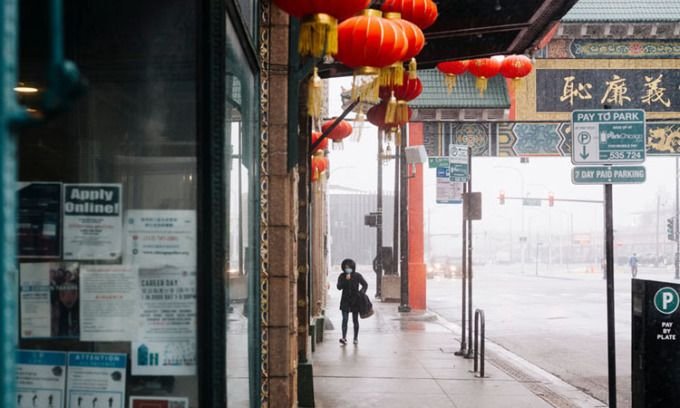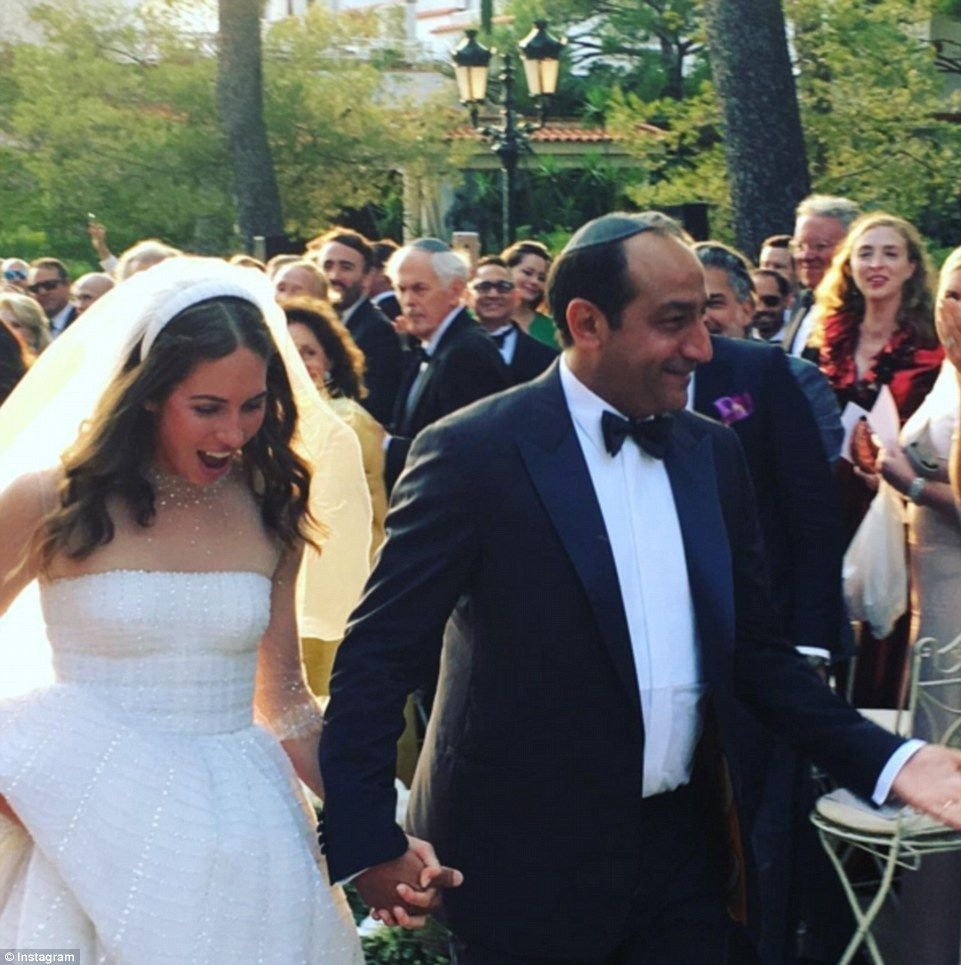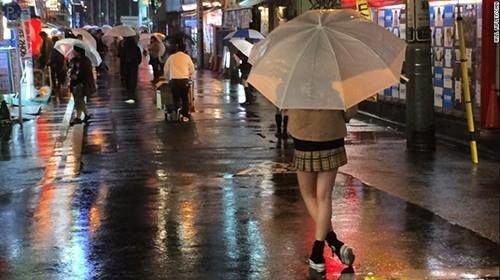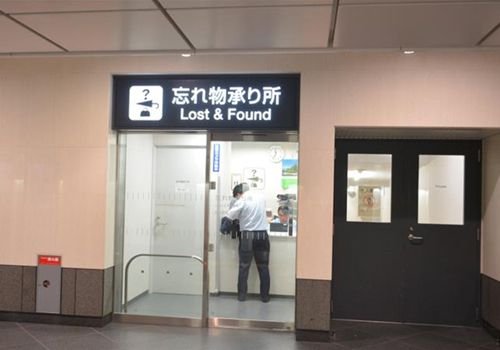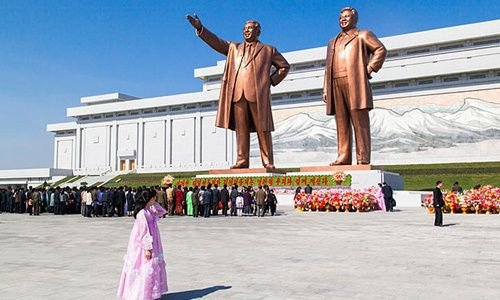At Slurp Slurp noodle shop on Chinatown in Chicago, Illinois, tourists no longer fill the tables at noon as usual.
Even as nCoV spread rapidly around the world and killed more than 1,700 people, mainly in China, the Covid-19 epidemic did not pose much of a threat to the United States, which has only recorded 15 cases of infection.
Woman wearing mask walking alone on Chinatown in Chicago, Illinois.
But for a part of Americans, those who come from China or frequently travel there or medical staff responsible for fighting the epidemic, life is being turned upside down because of nCoV.
Hundreds of Americans who had been in China felt confused and worried when they were quarantined for two weeks at military bases.
`Instead of saying ‘Get well soon’ or asking ‘Are you okay?’, they immediately panic,` said Aretha Deng, 20, a student at Arizona State University.
Chicago, home to the busiest airport in the United States, sounded the alarm last month when it discovered that a female passenger was infected with the corona virus after a trip to China.
Even after this couple recovered and was discharged from the hospital, the whole city was still worried.
In San Francisco, newly arrived immigrants from China said they were worried about the serious health threat facing relatives back home.
Yiao Xie, an environmental researcher working for a non-profit organization in San Francisco, returned to the US early on the morning of January 30 after a visit to Lanzhou city, Gansu province, China, just before the trips
Even though Lanzhou is far from the epicenter of Wuhan, Yiao’s colleagues still think it’s best for him to self-isolate at home for 14 days.
`Some people kept looking at me. I don’t think they hated or had anything against me, but they asked ‘Why are you wearing a mask? Are you sick?’` Yiao said.

Yiao Xie, Asian American, lives in San Francisco, California.
Robert Li, a San Francisco resident, was scrolling on his phone at a computer store last week when he heard an employee talking to customers about the Covid-19 epidemic.
`They are making fun of Asians. This is kind of racist, saying Chinese people eat everything,` Li shared.
News about the Covid-19 epidemic came after the US-China trade war, a confrontation that made many people feel unstable and worried about the economy.
`Epidemics can really make one group of people turn away from another group of people. History has shown that epidemics are always the fastest way to make a community stigmatized,` Pan said.
In recent weeks across the United States, health officials have issued warnings delicately: trying to protect the public without causing unnecessary alarm and discrimination.
`Ethnicity does not affect nCoV infection. Travel history and direct contact with infected people are the causative factors,` said Jeanne Ayersm, Wisconsin state health official last week, after announcing that
So far, the coronavirus is largely under control in the United States, thanks to a decision the federal government made a few weeks ago to cut flights from China and require a two-week quarantine at a military facility or at home for passengers.
Quarantined Americans said they feel confused about the current situation.
Last weekend, Jeffrey Ho, an auto mechanic in San Bernardino, California, was brought back to the US from Hubei province, where his wife’s family lives, on a flight arranged by the US State Department.
On the one hand, Ho said he doesn’t blame people for being afraid of contracting the virus.
But on the other hand, Ho shared that fear of the virus in America often leads to racist tendencies.

A man covers his mouth with his hand while walking on Chinatown in Chicago, USA.
Last week, Eileen Wong, a New York business consultant whose parents now live in Hong Kong, boarded a packed train in Philadelphia with a colleague and had to stand for the entire 90-minute journey home.
The woman sitting nearby looked up from her phone and looked up at Wong and her co-worker, then gasped when she discovered they were Asian American.
Wong’s colleague glanced down and saw the woman quickly Google on her phone: `How scary is the virus?`.
In the ethnically diverse area of Manhattan where Wong lives, she never thought of herself as being pushed to the margins.
